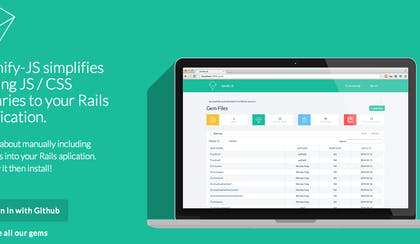Flatiron School
Page 46 of 58

Flatiron School
Project Recap: GemifyJS
Sunwoo and Wontae both picked up programming to make their respective workplaces more efficient with code. They’ve only recently graduated from Flatiron’s full-time Ruby course, but they’re already able to save other programmers a lot of time, too. As students, they built a development tool called GemifyJS to help developers create and manage Rails gems. […]

Flatiron School
Seeds
The following is a guest post by John Richardson and originally appeared on his blog. John is currently in the Ruby-003 class at The Flatiron School. You can follow him on Twitter here. Background: ADK 46-R The ADK 46ers are a set of 46 mountains in upstate NY higher than 4000 feet. If you climb all of these […]

Flatiron School
Hide Your Keys, Hide Your Tokens … Unless Deploying to Heroku
The following is a guest post by Greg Eng and originally appeared on his blog. Greg is currently in the Ruby-003 class at The Flatiron School. You can follow him on Twitter here. In that case, you have to do a little more than just hide them. Typically, an API will require a key or authentication token before […]
Flatiron School
MMDrawerController
In class, some of us have been using a very cool CocoaPod - MMDrawerController. It’s very useful and similar UI has been used in Facebook, GroupMe, Twitter and a plethora of other apps as well.

Flatiron School
Database Column Type – Array
The following is a guest post by David Bella and originally appeared on his blog. David is currently in the Ruby-003 class at The Flatiron School. You can follow him on Twitter here. Okay, So More Like “List” Relational databases are a great way to store, well, related data, in a base. Often times, we have to store […]

Flatiron School
Flatiron School Day Twenty Four – Include or Extend for a Module?
There are two ways to add a module to a class, include and extend.